History: Past, Present, and Future
Writing books about history is a dream come true for my husband Ray. He grew up around words. His daddy Wes worked at the local Columbia, Tennessee, newspaper for more than fifty years. As a boy, Wes carried papers. As a young high school graduate, he worked in circulation. When he came home from Europe after World War II, he became a linotype operator.
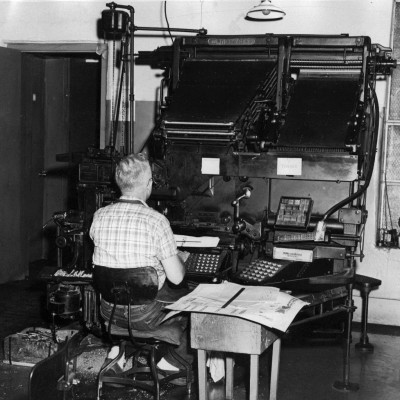
While Ray was growing up, his daddy encouraged him to read great books. Ray complied voraciously. In high school, he began to put his own pen to paper. After attending a math contest in ninth grade, he wrote a story about it, just for the fun of writing. We still have it, of course.
While in high school, Ray began to dream of writing a book. When he graduated, he followed his dad to The Daily Herald, working as a proofreader there for three summers.
Ray’s college major was history. It’s no wonder. His paternal grandfather had a virtual museum in his foyer. He claimed to have visited every Civil War battlefield. He was an avid Civil War collector at a time when artifacts were still lying around on the battlefields for the taking.
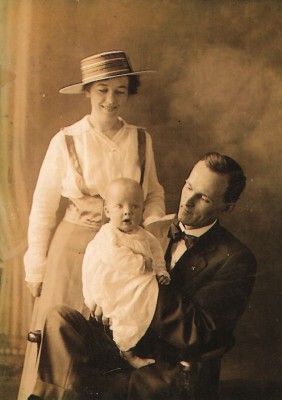
Ray sat at the feet of his father and grandfather as long as he could. Now he stands on their shoulders, as your children will stand on yours.
Grandchildren are the crown of old men,
And the glory of sons is their fathers.
Proverbs 17:6
While Ray was growing up in Columbia, reading the great books his daddy recommended and soaking up Civil War history from his grandfather, I was growing up sixty-six miles away in Ashland City, where my daddy was making sure my brother and I experienced history.
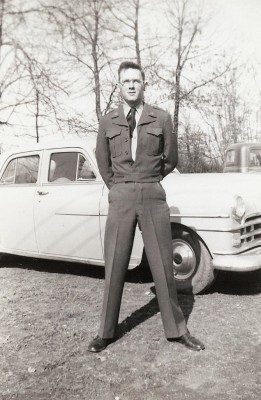
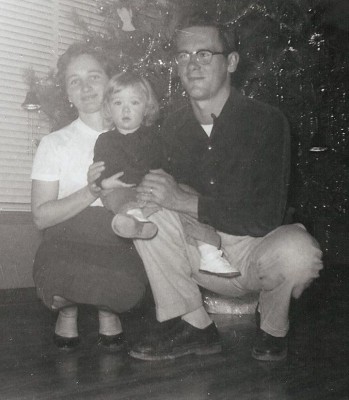
My brother and I played often on the steps of Nashville’s full-size reproduction of the Greek Parthenon. Day outings in Nashville took us to the reconstructed Fort Nashborough, and to the Hermitage, home of President Andrew Jackson. On another day trip we went to Lincoln’s birthplace in Hodgenville, Kentucky.
On one of Daddy’s annual three-and-a-half-day vacations from work, we went to St. Augustine, Florida, America’s oldest city founded by Europeans. Another year we went to Fort Sumter, South Carolina, where soldiers fired the first shots of the Civil War.
My maternal grandfather once told me that our ancestors wore skirts. I feel sure he was talking about Scottish kilts. He often sang old tunes and now I’m sorry I didn’t ask him about them. They sounded like they came from the old country. My paternal grandfather Daddy Leland told me about his ancestor who lived in a cave in Nashville. I later learned that he was Timothy Demonbreun, a French Canadian fur trader who fought in the American Revolution. He was the first man of European descent to live in the area.
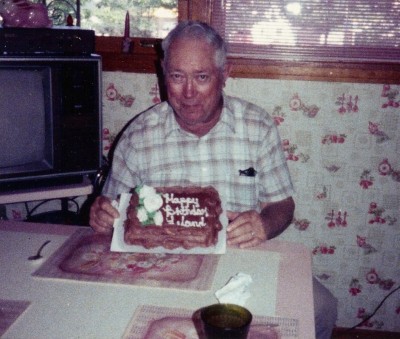
Ray and I know that we stand on the shoulders of our daddies and granddaddies and we both miss sitting at their feet. They planted seeds in our hearts as we were growing up. You are planting seeds in your children’s hearts every day.
Now He who supplies seed to the sower and bread for food
will supply and multiply your seed for sowing
and increase the harvest of your righteousness.
2 Corinthians 9: 10
Ray and I not only enjoy history, we are passionate about writing history for children. We are convinced that implanting stories from the past into the hearts and minds of children is imperative. The fact that history involves the past is obvious. Perhaps it is not as obvious that learning about history in the present is essential preparation for our children’s futures.
I recently mentioned the Wright Brothers in a conversation with a woman who works in a responsible position in an area business. She admitted that she didn’t know who they were. I told her that they invented the airplane. She told me that she wasn’t interested in history but that her husband was.
I don’t believe that people have the luxury of not paying attention to history. The subject is too vital. People who do not know history don’t know that the way things are right now are not the way they have always been. That can be dangerous. People who don’t know history have no context to understand the world. As a professor told Ray one time, “If you don’t know history, you don’t know who you are.”
Stories about how people lived out their faith fill the pages of Scripture. We can learn about people of faith in more recent history, too. When children learn that President Eisenhower worked to add “under God” to the Pledge of Allegiance and that President Theodore Roosevelt read the Bible every day when he explored the Maine countryside as a young man, they learn that powerful people in history have honored God. When they notice God is rarely mentioned in popular culture except as a casual interjection, they can realize that this has not always been the case.
In 1995 Thomas Cahill published How the Irish Saved Civilization. It tells how Irish monks and scribes preserved the documents of western civilization between the fall of Rome and the beginning of the Middle Ages. I believe that a thorough knowledge of history will prepare homeschooled children to play a vital role in preserving our most precious values in the future.
The mind of the prudent acquires knowledge,
And the ear of the wise seeks knowledge.
Proverbs 18:15


Love this. Showed to Presley today. Blessings to you.